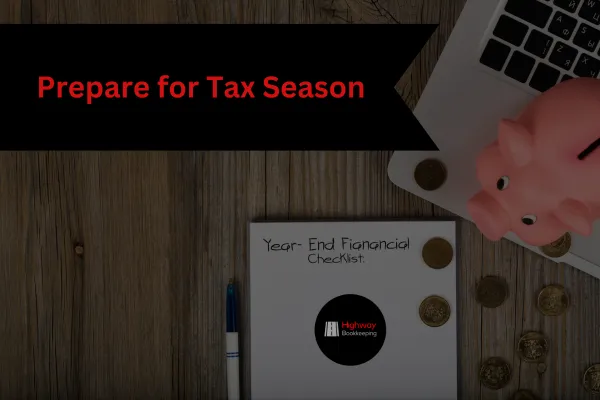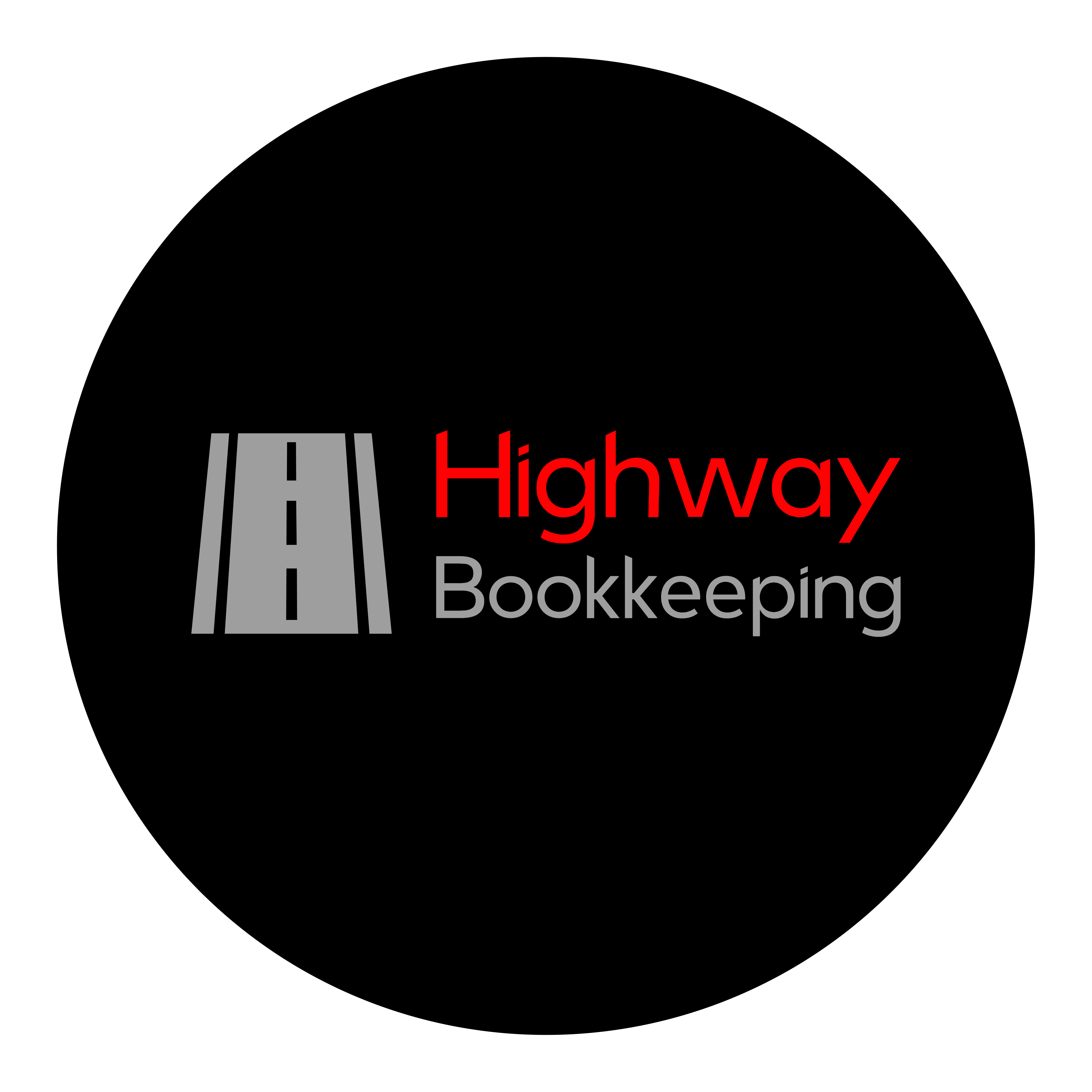The Highway Bookkeeping Blog

Tax Season Is Around the Corner. Here Are Some Items That May Need Your Focus.
A new tax season is right around the corner, and small business owners may feel the weight of expense receipts and sales invoices stacking up, missing monthly recording deadlines. Or maybe year’s end has a positive vibe of let’s look back and review how my business has grown.
Either way there are a few things to consider, collect, locate, organize and hand over to your tax professional. Check with them to be sure you complete their list of information they need.
Sales Invoices Closed & Posted
Most small businesses have a sales software they use to keep track of products/services and their customer base. Finalizing, importing, and recording open invoices in your accounting software (such as Quickbooks Online) is the concluding action in recording income for the year. Double check all pay types and sales invoices to make sure they have correct dates and totals on them.
Record for the best in Tax Write-Offs
Round up the last few receipts of the year. Reviewing business expenses and cost of goods for accurate accounting. Categorize all expenses through your accounting software correctly. If listed improperly, your business may miss out on a tax benefit crucial to your business.
Reconciled Bank/Credit Card Accounts
To prevent bank and credit card mistakes, reconciliations should be done monthly. This may be a task that is overlooked. This process always ensures accuracy and prevents double entries from being made. This process will save money in the long run. It is always good to make sure the ending monthly balances match. If balances are off, corrections can be made accordingly.
Assessing Your Assets-Correcting Year End Inventory Counts
If you miss inventory on the shelves you maybe miss tracking some assets. Making sure what you have on hand and what you sold not only helps to track sales but your inventory as an asset. It is not usually something you see monthly. You may pay for it and it will sit on a shelf until sold. It is a Balance Sheet item and gives your business value if and when you go to sell it or expand.
Payroll Updates & Reporting Contractor Payment Properly
Check over payroll essentials. Ensure you have the proper addresses and social security numbers for your employees. Do all employees have correct pay types and W4’s in your systems? Contracted workers paid by check or cash more than $600 in the year must need a 1099-NEC prepared. Typically this is an additional fee and maybe provided by your payroll service or bookkeeping professional. It is best to give a contractor a W9 before paying for their services. (Note: if paid by credit card, a 1099 is not necessary.)
Provide Tax Professional with Necessary Statements & Password Protect Your Year-End Reports
Review your financial statement and lock in the closing year in your accounting platform. Your tax professional will need statements such as the Income Statement and Balance Sheet. Occasionally they will require the general ledger to complete your tax returns. They may have a list of other documents they use to complete your return. See your own tax professional for their detailed lists they may be looking for.
Find Answers Beyond the Yearly Tasks Enter the Virtual Bookkeeper
These are just a few samples of top tasks that need completing to wrap up your year in business. If you are looking for more information or answers to your questions like, “Can I afford that new piece of equipment?” or “How can I save on my Costs of Goods Sold?” or “I need to hire another employee is this something I can afford?” or “How much should I be spending on advertising?” A bookkeeping partner can keep track of monthly transactions. This will help you in setting goals to make the wisest decisions for your small business. You may find these services more affordable than you think. Contact us at Highway Bookkeeping Business to find out how you can have more time in the day and money in your pockets.
If you are an Auto Repair Shop Owner,
We Can Help You Make More Money!
Copyright © 2024 Highway Bookkeeping Business |
Las Vegas, NV | (702) 277-2732




